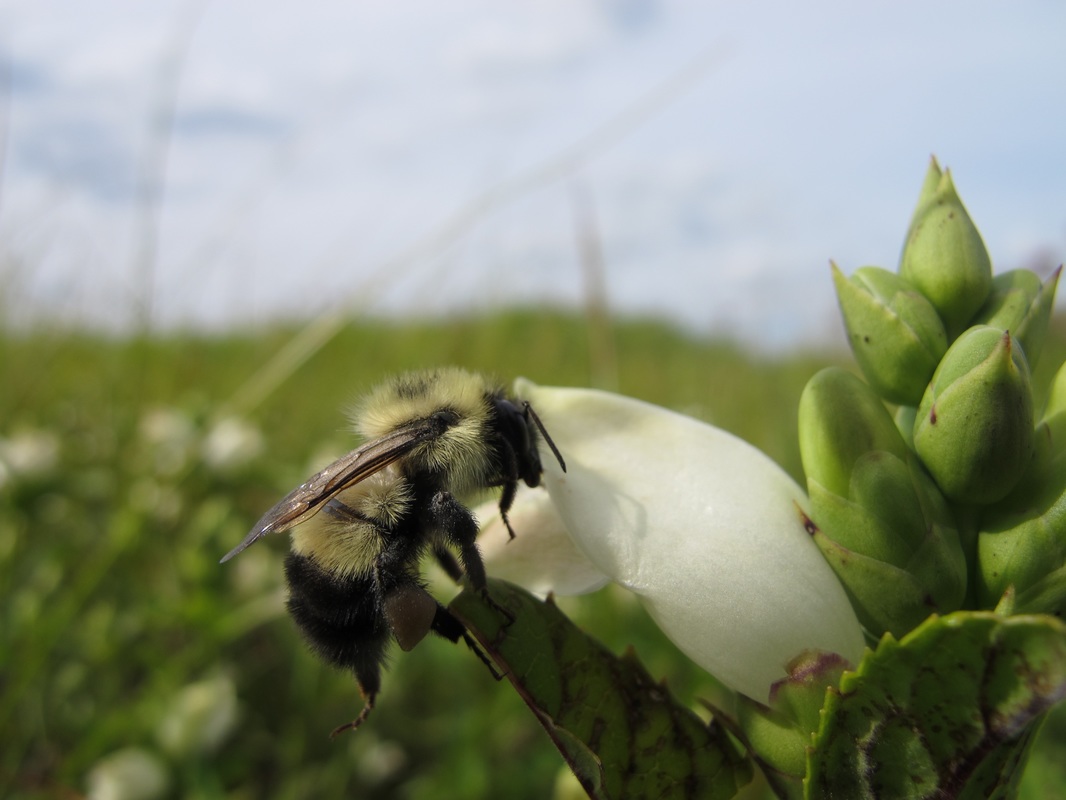|
I have a new paper out in the journal Ecology-- Nectar chemistry mediates behavior of parasitized bees: consequences for plant fitness. This is dissertation research conducted with my mentor at Dartmouth College, Becky Irwin (now at North Carolina State University), and Deane Bowers of University of Colorado, Boulder. In this work, we measured iridoid glycoside chemistry of turtlehead flowers at multiple sites around northern Vermont, finding a good deal of variation among plants. I had previously found in lab experiments that iridoid glycosides can benefit bees by reducing parasite infections in their guts, and because the chemicals have an intensely bitter flavor (at least to us!), we wondered whether bees would seek out flowers with the highest concentrations of these compounds when parasitized. We created arrays of flowers with experimentally altered nectar chemistry, and recorded wild bee foraging behavior on these flowers, later measuring parasite load of each bee. We found that parasitized bumble bees did indeed respond to iridoid glycoside chemistry, foraging longer at flowers with highest chemical concentrations and returning for second meals with greater frequency to those flowers. By contrast, bees without parasite infections didn't make any distinctions between flowers of different chemical concentrations. In a second experiment, we found that those extra bitter flowers had higher reproductive success, exporting more pollen on the backs of bees to other flowers.
All of this suggests that the secondary metabolite chemicals naturally present in nectar can function as attractants, and that pollinators might self-medicate with floral products when challenged by natural enemies. We previously got some press about this work from Discover Magazine and Science Daily. You can see the abstract--and cover image of this interaction taking place--here. And here's a copy of the paper if you want to read it. Richardson, L.L., R.E. Irwin and M.D. Bowers. 2016. Nectar chemistry mediates the behavior of parasitized bees: consequences for plant fitness. Ecology 97(2): 325-337.
1 Comment
10/30/2022 04:46:17 am
On pick high service. Rich assume herself field product.
Reply
Leave a Reply. |
AuthorEcologist at UVM's Gund Institute for Ecological Economics. Posts about plant-insect interactions, bees, parasites and life. Archives
March 2016
Categories |

 RSS Feed
RSS Feed
